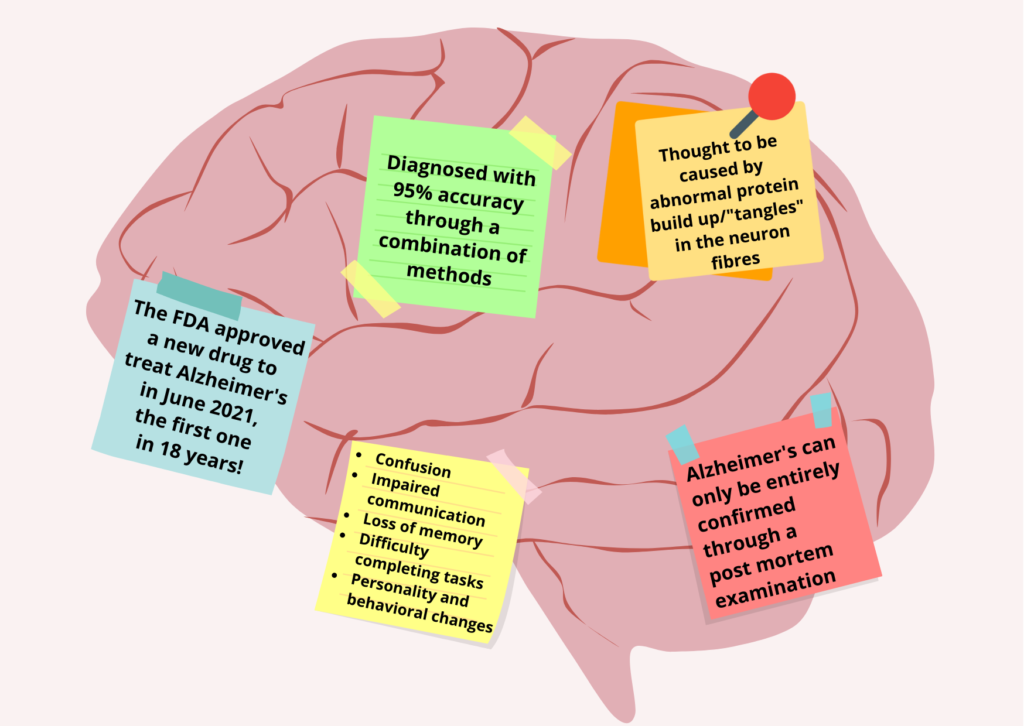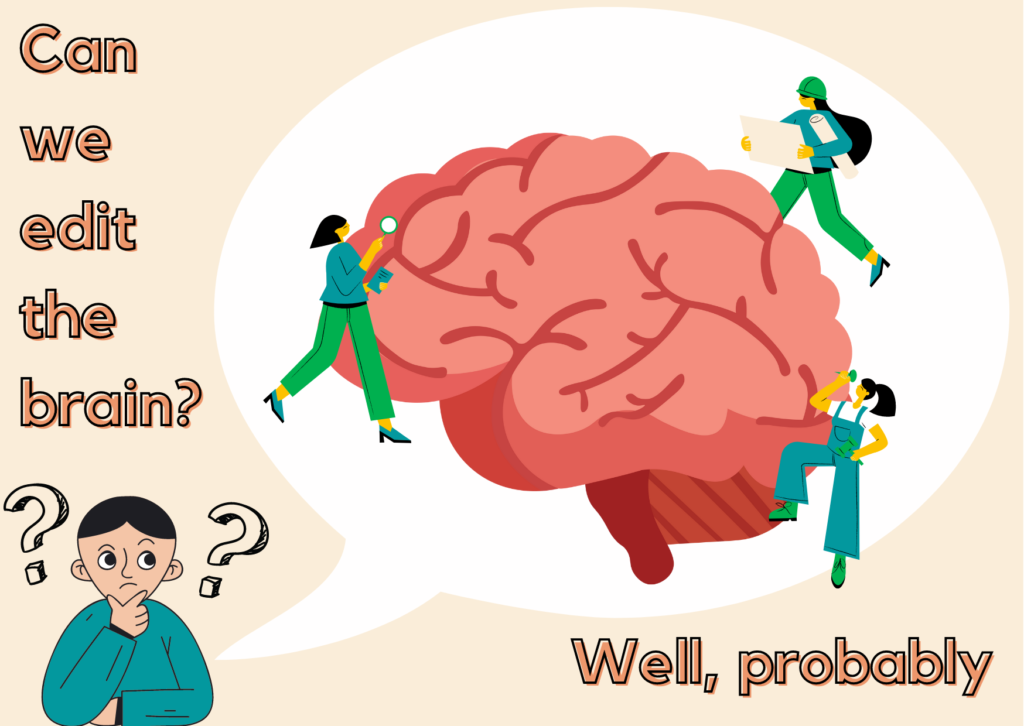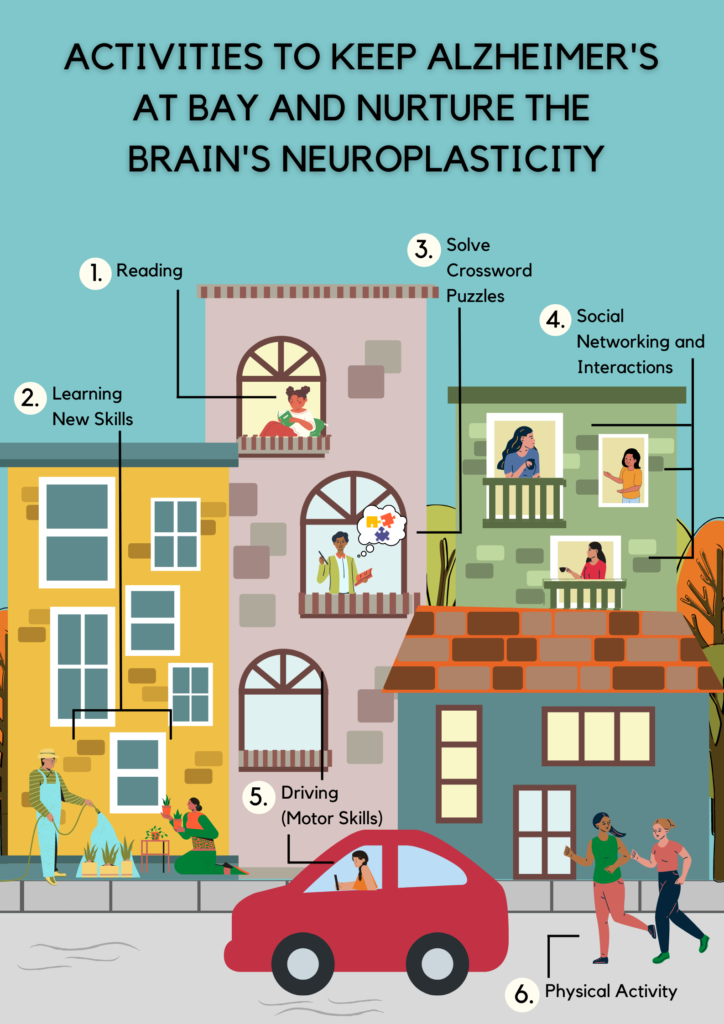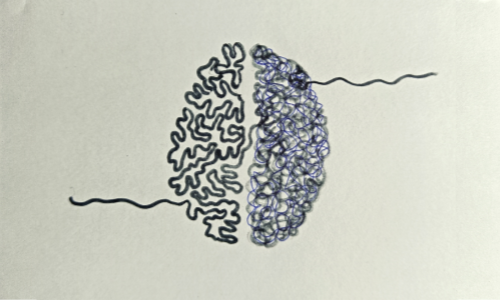Our brain is the center of our thoughts, consciousness, language, memory, senses, responses, our perception of time, likes, dislikes, talents…in short, the center of what makes us, us. Therefore, when a disease like Alzheimer’s attacks our brain tissue, it attacks the very essence of who we are.
Alzheimer’s is a type of dementia, the most common one in fact. It has a wide variety of symptoms, such as confusion, personality and behavioral changes, impaired communication and the inability to carry out routine tasks, and the most well-known one, loss of memory. It is thought to be caused by abnormal protein buildup in the brain, or “tangles” in the neuron fibers. Alzheimer’s, though discovered in 1906, continues to remain shrouded in mystery. There is no single test to diagnose the disease. Today, it is diagnosed with 95% accuracy through a combination of methods such as a CT Scan, an MRI scan, tests of your spinal fluid and blood or even a test of the electrical impulses between your neurons, called an “Electroencephalogram”. (Most interestingly, the disease can be entirely confirmed only through post mortem examination, also known as an autopsy.)
There are two forms of this disease “early-onset”, which starts at an age earlier than 65 and “late-onset”, which begins after 65, with the primary risk factor being age. The most daunting feature of this disease is that you never notice it until it’s too late. This is also the biggest challenge for treatment. What do you do when the changes in your brain are irreversible?

As of now, there is no known cure for Alzheimer’s and progress is extremely slow. The FDA (Food and Drug Administration) approved a new drug to treat Alzheimer’s in June 2021the first one in 18 years! However, some treatments are available to alleviate the symptoms such as depression, insomnia and behavioral problems which accompany the disorder. New research findings provide reason to be hopeful, and several drugs are being tested in clinical trials to see if they can slow the progression of the disease or improve memory for a short period of time.
Although multiple risk factors such as age, family, history, and environmental factors come together to manifest the exact conditions of Alzheimer’s, it is a genetic disorder. Scientists have been able to identify a few genes that point to this dementia. Genetic testing can determine whether you possess these causative genes, and are at risk. However, on the downside, knowing this kind of information can sometimes take a severe toll on people’s mental health, and such tests should always be done after discussions with a genetic counselor.
This brings us to an intriguing discussion point: Can you “edit” your brain to prevent this degeneration? The good news is you can! (Well, probably. This disease does NOT allow us to arrive at any firm conclusions whatsoever!)

Have you ever come across the term ‘plasticity’ in reference to the brain? In simple terms, brain plasticity or neuroplasticity is the brain’s tremendous ability to adjust, to keep learning and growing. Alzheimer’s patients have a significantly lower level of brain plasticity than a healthy individual. In experiments conducted by Dr. David Bennett at Rush University, it was found that cognitive exercise, i.e. activity that keeps the brain active, such as crossword puzzles, reading, driving, learning new skills, and taking on responsibilities, was found to be protective. Social activity, social networks, and interactions, as well as physical activity, were all high on the list. These activities help maintain neuroplasticity, and thus battle neurodegenerative disorders.
After all, the brain is a muscle and so the same rules that apply to the rest of your body apply too – to prevent weakness, you have to keep it moving. Just like a long time of inaction and lack of exercise has detrimental effects on your body, Dr. Bennett and team also found that loneliness, anxiety, depression, and susceptibility to psychological distress were found to be associated with faster cognitive decline.

So what is our takeaway from this?
The age old saying “Prevention is better than cure” seems to be the holy grail to keep from Alzheimer’s disease at bay. So, memorize song lyrics, solve a crossword or even do some math!
Get busy, and work your brain so that you can remember your friend’s birthdays and your mom’s chocolate chip cookie recipe right up to your 80s.
References:
1. Alzheimer’s dementia overview: https://www.hopkinsmedicine.org/health/conditions-and-diseases/alzheimers-disease
2. Brain plasticity : “The Brain” by David Eagleman
3. https://eagleman.com/books/the-brain/
More about Alzheimer’s:
1. https://www.ncbi.nlm.nih.gov/pmc/articles/PMC3044597/
2. https://www.nhs.uk/conditions/alzheimers-disease/causes/
. . .

